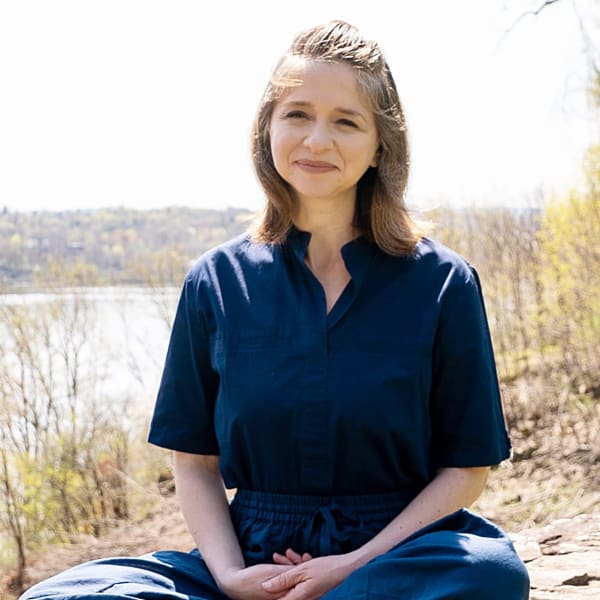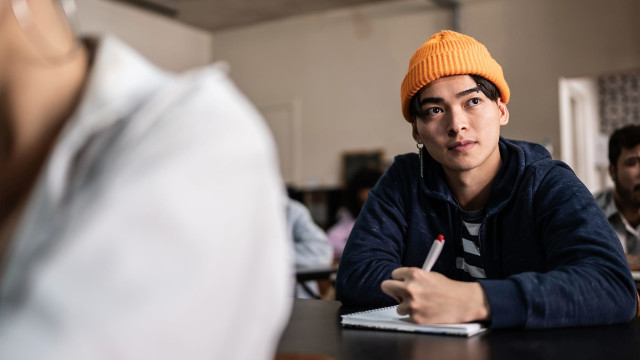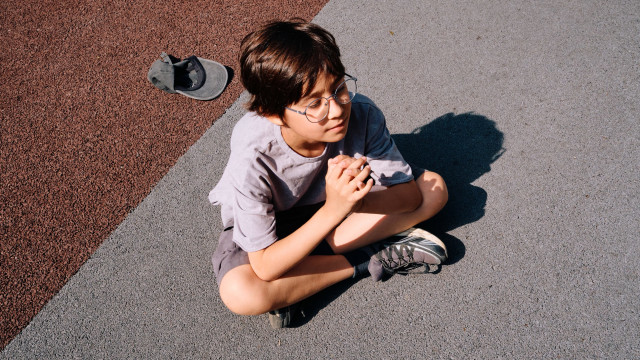Meditate in Your 20s: The Why

I was living on 14th Street in New York City when two airplanes crashed into the North and South towers of the World Trade Center. It was somewhat early in the morning when I walked to class and began seeing people bolt, covered in gray dust, yelling “Run north! Run north!”
I remember being so confused, as I realized the meeting with my professor that morning was most likely canceled. I remember trying to contact my parents as I tried to comprehend the intensity of the situation. I remember feeling scared, unsure of whether what had happened downtown was going to happen to our dorm building. I remember being glued to the TV. I remember feeling anxious, traumatized, and scared.
After 9/11, I suffered from post-traumatic stress disorder (PTSD), which, coupled with my pre-existing anxiety and existential fear, led me to attend my very first meditation retreat in the winter of 2001. I had never meditated before this point. In fact, the only time I’d ever been exposed to meditation was in high school, and I just fell asleep because I found it boring.
To my surprise, this silent meditation retreat wasn’t an all-inclusive spa with facials and massages. I sat in complete silence, alone with my thoughts, for seven full days — and it was terrifying. During the first few days, I had many panic attacks and seriously considered going home. But by the third day, I began having insights of a kind I had never experienced before, despite being a beginner meditator.
Meditation: An Introductory Course to Myself
I remember saying to my teacher, “I just feel afraid all the time,” to which he responded, “Fear doesn’t like the light.” Through meditation, I imagined shining a light and questioning the source of my fear. And while several things came up, I realized that underneath my fear of dying, I held a deep-rooted fear of not existing and of being irrelevant. This experience helped me illuminate a source of pain in my life that had existed since childhood, and that affected the way I moved through the world in my teens and twenties.
I never had problems keeping good grades or handing in assignments in college. I did, however, struggle with social anxiety, which contributed to my PTSD after 9/11 because I didn’t have a community or strong connections to support me. It was difficult for me to create friendships, maintain romantic relationships, and hold conversations with anyone that existed outside of my closest inner circle of friends and family.
While it took about five years of meditating regularly before these massive anxieties became a part of my past, meditation did allow me to begin slowly approaching life with more ease, especially in the latter half of my junior year and throughout my senior year in college. I learned how to relate to myself with kindness and embody a more relaxed, joyful way of being in the world.
Meditation for Students
My introduction to meditation as a young adult is one of the main reasons I decided to work with college students when I began my career as a meditation teacher. While 20-somethings can grasp and understand very complex topics about the world, they are still malleable — even when some have endured extensive trauma, pain, intense loss, or grief.
Being 20-something is prime-time to understand your mind and heart, and to undo any intergenerational trauma so you can steer yourself in a different, more positive direction. For example, it’s a caricature of Judaism that every Jewish person has anxiety; but meditating in my twenties helped me understand how to work on breaking that hereditary cycle of normalizing my pain.
As the founder of MindfulNYU, I’ve learned college students are increasingly seeking meditation as a tool to cope with the stressors of life. In fact, whenever I ask, “Who’s meditated before?” about 90%-95% of the room has had at least one experience with meditation. While I am ecstatic at its growing popularity, I think it’s important to find community as you begin building a practice.
I am grateful to have been introduced to meditation under the auspices of Judaism because I was taught by a community I identified with. Community provides you with a group of like-minded individuals to set goals with and remain accountable for — at least until the benefits of meditation serve as your motivation. Finding a meditation style and group that best benefits you is a very individual experience.
It’s equally important to find a teacher you resonate with, who can help customize your meditation practice to fit your current needs and past experiences. If you are struggling to find a community with which you identify or a teacher that resonates, I ask that you remain vigilant in your search for a space and instructor with which you feel at home.
Take Baby Steps When Training Your Mind
Whether it’s remaining present for just one breath before you start your day, committing to attending a weekly group meditation, or taking note of the sights, smells, and sounds of your environment as you walk to class, remember that training the mind to stay present is difficult and you will likely have to do so very often — especially as you begin your meditation practice.
So, be kind to yourself, and practice patience with your consciousness as you learn to Filter Out the Noise of Your Mind.
Looking to be present and improve your mood? Try a guided meditation with Almeiri Santos like this one, Instant Gratitude Boost.
Key Takeaways:
- Being 20-something is prime time to understand your mind and heart and to undo any intergenerational trauma.
- Meditation can help in forming a sense of community, and self-confidence.









